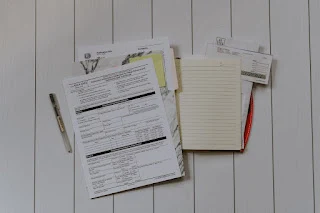How to File Your Small Business Taxes
Small business owners wear many hats, but it isn't possible to know how to do everything. Unfortunately, many small business owners are too busy to spend time on taxes, but they know that handling their taxes correctly is necessary if they want to avoid fees.
It's almost impossible for one business owner to know everything there is to know about small business taxes and what they need to pay. However, this guide should help you learn about taxes your small business needs to pay and help you get started on tax planning. Here's what you need to know about idling your small business taxes.
Types of Taxes Small Businesses Pay
Your business will need to pay many different types of taxes. However, not every business pays the same taxes. These are the types of common taxes you likely need to pay or learn about:
1. Income Tax
If you make a profit, you must pay federal income taxes. Your state may also have business income taxes with similar guidelines. The specifics of income taxes will vary depending on the type of business, but income taxes are typically one of the most expensive taxes you'll pay.
2. Sales Tax
If your business sells anything, you'll have to pay sales tax. While the customers can pay sales tax, you need to ensure you're collecting the correct amount so you can send it to the proper authority. If you don't collect this tax from your customers, you'll need to pay it yourself.
3. Property Tax
If you own any property, then you're subject to property tax. State and local governments charge this type of tax on anything your business owners, including real estate or business equipment that is considered your property.
4. Self-Employment Taxes
If your business is a sole proprietorship, partnership or LLC taxed as a partnership, you'll need to pay self-employment tax at the federal and state levels. Self-employment tax is different from income tax because the business owner pays these taxes rather than the business. However, this isn't always the case and depends on your ownership interest in the business.
Other Types of Taxes
Other taxes apply to a select number of small businesses, including:
- Excise taxes
- Gross receipts taxes
- Franchise taxes
- Dividend taxes
Determining Tax Rate
Every type of tax your business needs to pay has its tax rates. The rate your business is subject to depends on specific factors of the tax. Here are some tax rates that typically apply to small businesses.
Income
Income taxes and self-employment taxes are based on the income of the business. Corporate tax rates are 21% at the federal level and vary from state to state at the state level. However, sole proprietorships, partnerships, and LLCs typically don't have to pay income tax at the entity level; instead, the income tax is based on personal income tax returns. These rates can be as high as 37% at the federal level. Self-employment tax rates are standard at 15.3% up to a maximum wage limit and 2.9% above the limit.
Gross Sales
Sales tax is typically modified on a business' revenue from selling taxable goods and/or services regardless of the business' profit. Sales tax rates vary from state to state. Some states don't charge sales tax, while others have high rates of 10% or more. There are also local city and town sales taxes.
Property
Property taxes depend on the value of the property. Therefore, these tax rates are stated per $100 of the property's value, which corresponds to about 1% tax.
Payroll
Payroll taxes are collected as a percentage of the wages you pay your employees. Payroll taxes may only apply to certain incomes.
Filing Your Small Business Taxes
Filing your small business tax will differ depending on the type of taxes you pay and where you live. However, there are general steps to follow to ensure you're making deadlines and paying the correct amounts. Here's how to file your taxes:
1. Learn About the Type of Tax
Learning about the types of taxes you owe can help you learn about deadlines and the amounts you'll owe. The IRS can help you learn about income and self-employment taxes at the federal level, while your state can tell you more about local business taxes, including income and sales tax. In addition, your local business registration office will provide you with details about property taxes.
2. Collect Documentation
Once you know what taxes you'll pay and when they're due, you can start gathering documents you need to inform the tax authorities and calculate what you'll owe.
3. Fill Out Forms
If you've been doing proper bookkeeping, then you should have all of the information you need to fill out tax forms. Taxes require you to fill out forms that can help you calculate the amount you owe and provide the tax agencies with more information about you so your taxes can be correctly filed. For example, income tax forms will ask that you include your gross sales and deductions so you can easily do the math to find your taxable income and total due.
4. Send Your Filings
Once your forms are complete, it's time to send them to the proper authorities. You can send them in the mail or use electronic submission if that's offered to you.
Ask For Help When Needed
Managing all of the different types of business taxes can be difficult for any small business owner. If you're not sure what you need to pay and how much, consider working with professional tax software or an accountant that can help you get on the right track.
Always Pay Your Taxes
Small businesses often make the mistake of not paying their taxes or not paying their taxes on time. Not filing your taxes can get you into trouble with the IRS and local authorities, which means your business could be subject to massive fines. Learning about your taxes and how to file them before tax season arrives can help you save time, money, and energy.
Matt Casadona
Matt Casadona has a Bachelor of Science in Business Administration, with a concentration in Marketing and a minor in Psychology. Matt is passionate about marketing and business strategy and enjoys San Diego life, traveling, and music.













